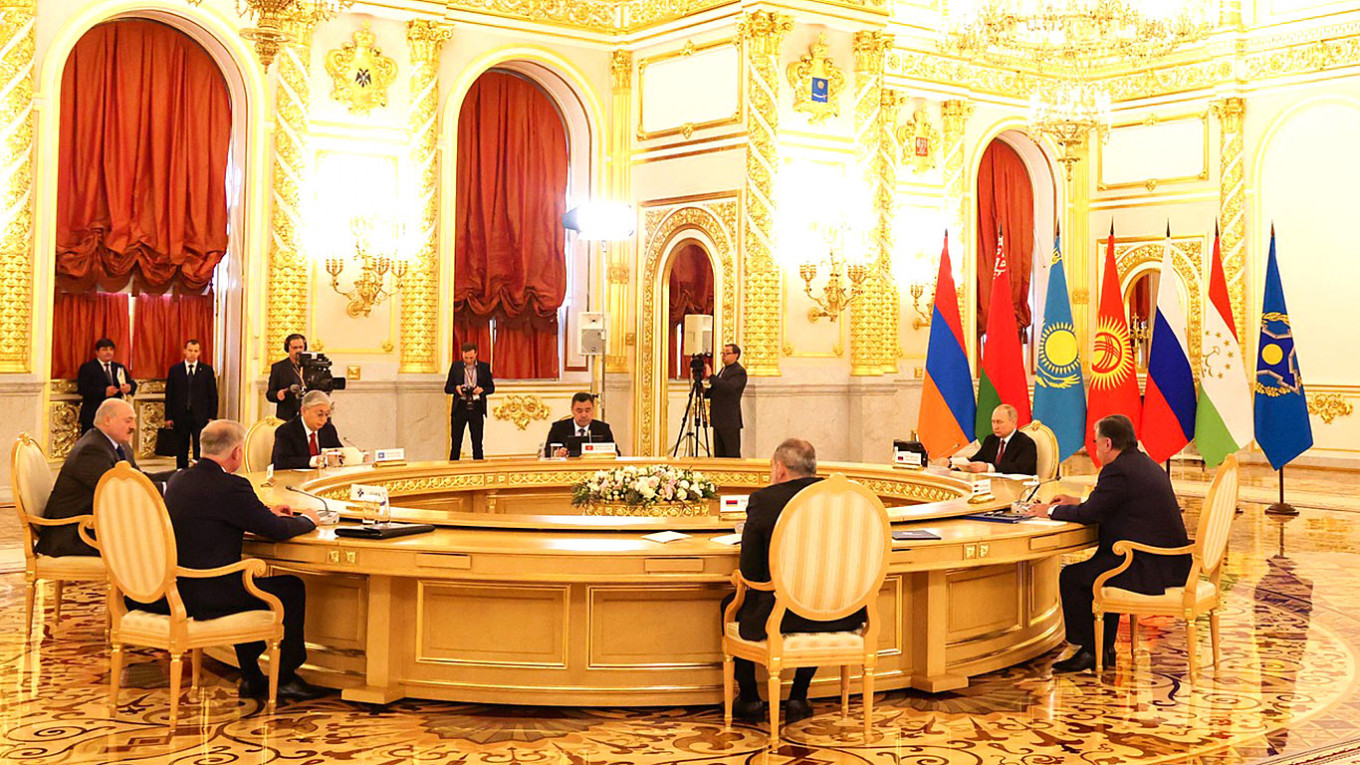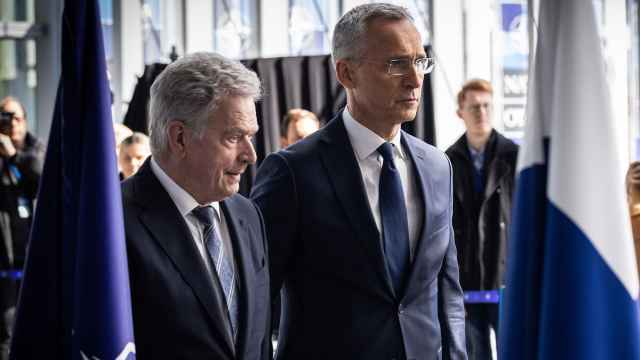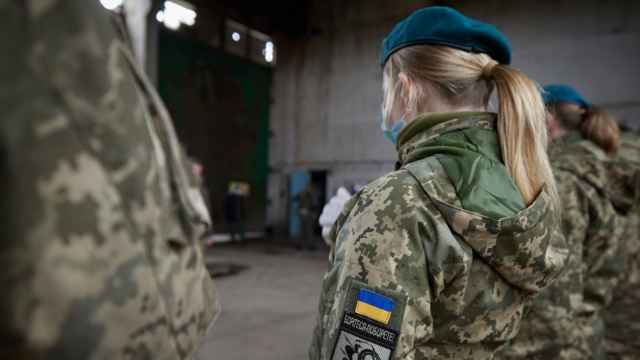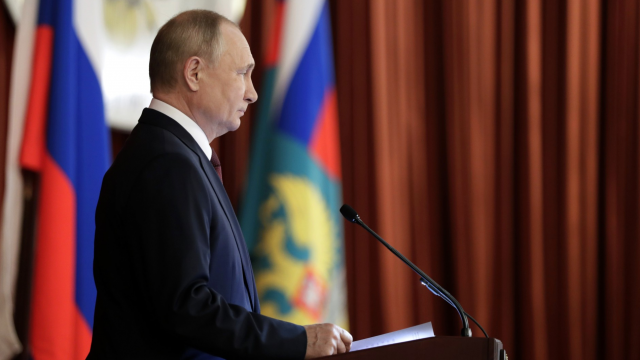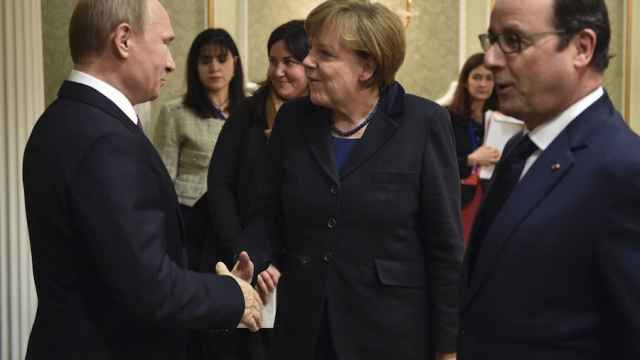Sweden and Finland’s anticipated bid for NATO membership “doesn’t pose a threat” to Russia but may “trigger a response,” President Vladimir Putin said at a summit of former Soviet allies on Monday.
The two Nordic countries have made historic steps toward joining the U.S.-led military bloc in the wake of Russia’s invasion of Ukraine, citing the need to guarantee their security from feared Russian aggression.
Speaking at the Collective Security Treaty Organization (CSTO) summit in Moscow, Putin said that while Russia “doesn’t have problems” with either country, the expansion of NATO’s military infrastructure across their territory may “trigger a response.”
“What kind [of response] it will be, we will decide depending on threats that are created against us,” Putin warned.
Putin noted that NATO’s “expansionist politics” which led the alliance “to overstep its intended geographic boundaries” warrants the Kremlin to keep a close watch on the situation.
NATO’s role was also highlighted in the collective statement issued by the CSTO.
“Realizing our responsibility for ensuring lasting peace in the Eurasian region, we emphasize the importance of de-escalating tensions in the continent and reaffirm our readiness for practical cooperation with NATO,” the statement says.
Russia sent troops into Ukraine on Feb. 24 after its demands for NATO and the United States to permanently bar Ukraine from joining the alliance and to halt NATO expansion in what Moscow sees as its sphere of influence were refused.
Leaders of fellow CSTO members Armenia, Belarus, Kazakhstan, Kyrgyzstan and Tajikistan gathered in Moscow for Monday’s summit, which coincided with the 30th anniversary of the Russia-led military alliance’s founding.
In a televised segment of the summit, Putin also proposed granting the Commonwealth of Independent States (CIS) the status of a permanent CSTO observer. The CIS alliance includes all CSTO member states as well as Azerbaijan, Moldova and Uzbekistan.
Despite existing for three decades, the CSTO carried out its first large-scale “peacekeeping mission” in January this year when Kazakhstan’s President Kassym-Jomart Tokayev requested military assistance to quell a wave of anti-government unrest.
A Message from The Moscow Times:
Dear readers,
We are facing unprecedented challenges. Russia's Prosecutor General's Office has designated The Moscow Times as an "undesirable" organization, criminalizing our work and putting our staff at risk of prosecution. This follows our earlier unjust labeling as a "foreign agent."
These actions are direct attempts to silence independent journalism in Russia. The authorities claim our work "discredits the decisions of the Russian leadership." We see things differently: we strive to provide accurate, unbiased reporting on Russia.
We, the journalists of The Moscow Times, refuse to be silenced. But to continue our work, we need your help.
Your support, no matter how small, makes a world of difference. If you can, please support us monthly starting from just $2. It's quick to set up, and every contribution makes a significant impact.
By supporting The Moscow Times, you're defending open, independent journalism in the face of repression. Thank you for standing with us.
Remind me later.


